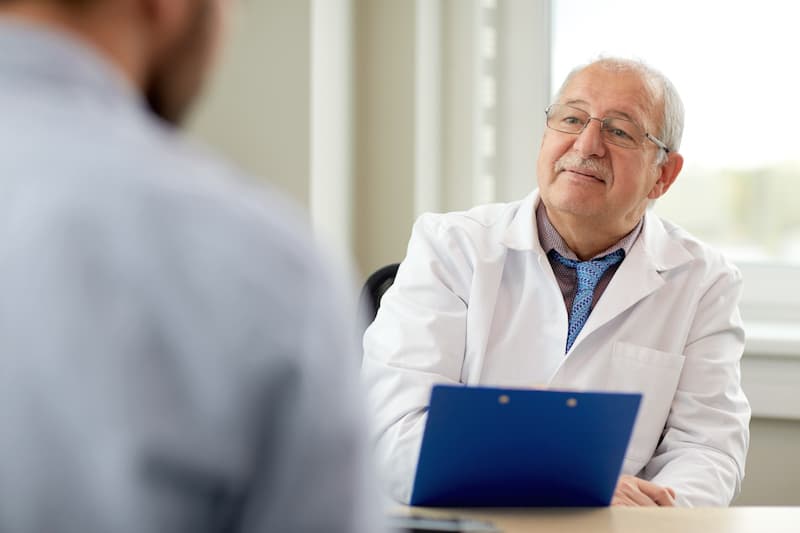Opioid drug addiction has been referred to as one of the greatest health epidemics of the 21st century. In fact, more than 115 people die every day of an opioid overdose.[1] Because of its cheaper value and easier access, individuals from all socioeconomic backgrounds and geographic locations have been plagued by the opioid resurgence. This health crisis needs to be addressed immediately with opioid drug treatment.
Effective treatment for opioid addiction is absolutely critical before individuals become psychologically and physically dependent on the drug. By seeking early treatment and taking action against this disease, individuals can avoid a relapse and can regain control of their lives again. With the guidance and support from a Christian Drug Treatment Center, individuals will recover their health and find purpose again in their lives.
Becoming informed on the steps of the opioid drug treatment program will help you to prepare for a program that emphasizes the restoration of the mind, body, and soul from opioid addiction. You deserve a second chance at life; by choosing a treatment program that emphasizes a spiritually-based approach and whole-person treatment, you can finally overcome opioid addiction.
4 Things to Know About Opioid Drug Treatment:
- Overcoming the withdrawal symptoms. The first thing you should know about opioid drug treatment is that although the detoxification process will be difficult, medical professionals will aid you every step of the way. Medications such as Methadone, Buprenorphine, and Clonidine can be used to ease withdrawal symptoms. These withdrawal symptoms may include the following:
- Anxiety
- Insomnia
- Nausea
- Sweating
- Diarrhea
- Cramping
- Mood swings
- Agitation
- Craving for the drug
- Seizures
By detoxifying the body from opioids, you will now be able to spend time focusing on rebuilding your self-concept. By establishing happiness from new sources of activities and by strengthening the important relationships in your life, you will develop a new attitude towards overcoming your addiction.
- Creating an individualized treatment plan. After the medical detoxification process, you will work with the treatment team of therapists and spiritual counselors to create a comprehensive treatment plan that fits and adapts to your mental, physical, and emotional goals. A treatment plan will be created with intensive psychotherapy options to provide you with relaxation techniques to release unwanted stress and to establish mindfulness techniques to reduce cravings for the drug.
- Practicing coping mechanisms. During individual, group, familial, and spiritual counseling sessions, you will learn how to replace unwanted thoughts and behaviors with positive outcomes. By understanding the depths of your addiction and its causes, you will learn how to recognize feelings of stress, sadness, or anxiety and replace those feelings with an outlet that you enjoy. During therapy, you will learn a multitude of coping mechanisms to replace destructive thoughts and behaviors and will learn how to implement healthier habits in your everyday life. These can include exercise programs, artistic activities, sleep and nutrition plans, and mindfulness practices.
- Choosing an aftercare program. Because opioid addiction is extremely prevalent in most environments, you need to know that you will be provided with sustained care when integrated back into your old community. During the treatment program, you will create personal and professional goals that you will be accounted for by your therapist and by the spiritual community. You will learn to sustain a job and to complete home and familial responsibilities again in the absence of the drug. By maintaining therapy sessions and connecting with the church community, when you realize that you are craving the drug, you can immediately call your counselor and be proactive against a relapse.
A Lifetime of Support
Recovering from opiates is a long and difficult process, but one that can also be nurtured and supported through establishing a strong spiritual foundation. Establishing a strong sense of faith during the recovery process can restore the person’s mind, body, and spirit. The individual must be consumed by support through individual and group therapy sessions and an after-care treatment program that helps individuals avoid a relapse. A recovery program with a strong spiritual foundation can truly help individuals struggling with addiction overcome their difficult moments and find faith in God.
At Covenant Hills, clients work with pastors, therapists, and counselors who are professionally trained in the Christian-based treatment program. They help individuals connect to a larger community of God and support the process of finding purpose again in one’s life without addiction.
[1] https://www.drugabuse.gov/drugs-abuse/opioids/opioid-overdose-crisis








